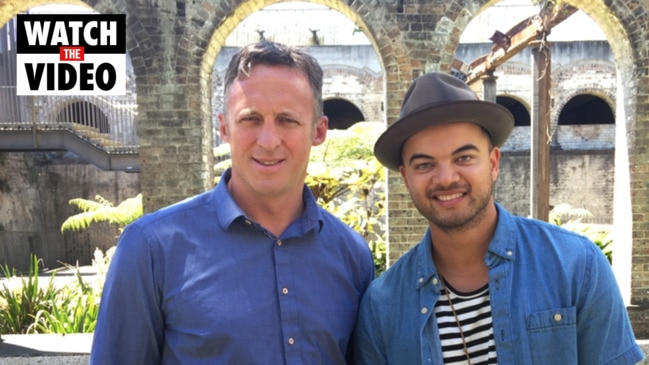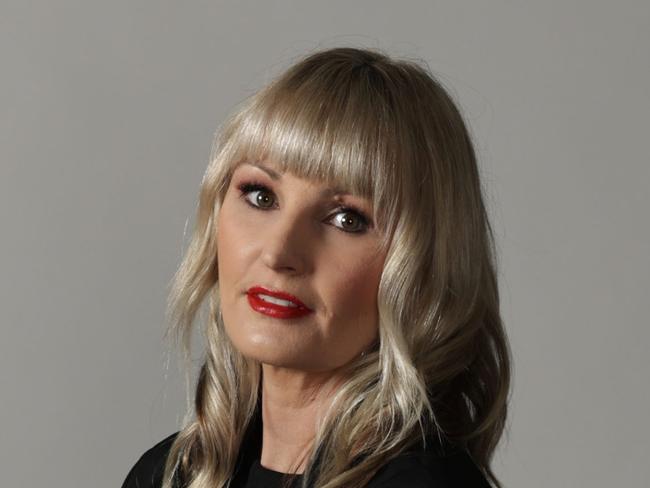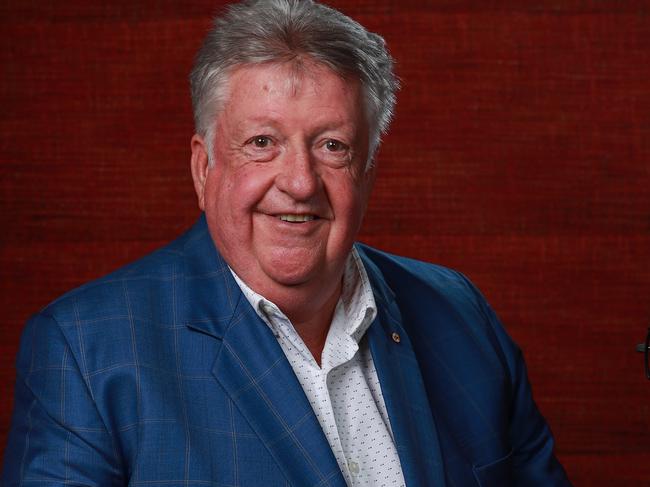Annette Sharp: Vanessa Picken faces difficult task as new boss of Sony Music
As the new boss of Sony Music Vanessa Picken has the credentials for the role, but some sceptics are already describing her appointment as “token”, writes Annette Sharp.

Entertainment
Don't miss out on the headlines from Entertainment. Followed categories will be added to My News.
A year after the departure of powerful long-serving Sony Music executive Denis Handlin, the company last week announced the appointment of a woman to the CEO’s role – but it’s unlikely to be the end of the turmoil for Sony.
Vanessa Picken’s appointment – on the back of Sony Music New York assurances the company would conduct an investigation into the company’s workplace culture, which it is yet to release – was broadly celebrated by the media last week.
Picken, an Australian who is perceived to be a strategic and creative thinker, comes with a gladbag of credentials that includes 15 years’ experience promoting musical artists and a decade running small companies.
Her appointment coincides with Sony embracing experimentation as a business strategy globally, something that will benefit from Picken’s knowledge of the current digital ecosystem.
With a background in marketing, Picken made the jump from telecommunications company Nokia to EMI Music Australia where, from 2006 to 2011, she worked as a label manager, digital marketing manager and global account manager.

A stint as director of digital music agency Run DNA followed in 2011.
In 2013 she founded global digital agency Comes With Fries, providing tailored services and strategies to artists, and since 2019 has been working her way up the ranks at Los Angeles-based PIAS, a family of independent record labels, where she was promoted to managing director in 2020.
Although Picken’s background is exclusively in indie music – something Sony traditionally has seen little profit in – she has the digital skill-set Sony Music Australia needs now, although it’s an open secret in the music industry she was not the first choice of New York-based Sony Music Entertainment chairman and CEO Rob Stringer.
A number of higher-profile candidates are believed to have knocked back the role when the man Billboard has dubbed the second most powerful player in the music industry in 2022 came calling.
Remarkably the global company found it had failed to foster a succession plan in Australia under Handlin. His son Pat was a one-time VP of A & R but he too left Sony last year. He is understood to be in talks to join radio shock jock Kyle Sandilands in a new venture.

Picken will have her work cut out for her in an industry still dominated by men, and in which sceptics are already describing her appointment as “token” and merely a measure taken by Stringer to improve the optics at the company following the controversy of last year.
Big labels Warner, Universal, EMI, Mushroom, BMG and Unified are all helmed by men locally while Island, a subsidiary of Universal, is one of the few that has installed a woman, Nicole Richards, at the top.
Based on the intense and ferocious vitriol levelled at other female CEOs of Australian companies – from Christine Holgate (ex Australia Post) to Jayne Hrdlicka (Virgin Australia) and former ABC managing director Michelle Guthrie – Picken can expect, from day one, to be under fire and under pressure in the new role.
She not only has to repair the culture at Sony, she is tasked with wrestling market popularity back from Warner (which enticed Jessica Mauboy from the Sony stable) and with making the Sony label great again locally by attracting hot young artists to the roster.
Additionally Picken – who is in a long-term relationship with Sound Australia export music producer Glen Dickie – must transform a company that had fallen behind in the digital revolution that in this era relies upon social media promotion, social content creation and investment in multi-platform music media channels and outlets.
All this, while inspiring the beleaguered staff left behind after last year’s clean-out.
Before Picken takes up the job in September, Sony is under pressure to first release the findings of its investigation into the company’s culture, to give its new CEO the clear air she will need to start afresh.
To date, the company has been dragging its feet concerning the report, fearing media backlash and further damage to its battered brand.
DAY JURY TO CONSIDER 11 DIRECTIONS
THE six-week trial of singer Guy Sebastian’s former manager Titus Day is expected to wind up on Monday when the defence closes its case and the jury adjourns to consider its verdict.
After frequent breaks during the embezzlement trial, during which the jury was asked repeatedly to step out of the courtroom so that Judge Tim Gartelmann might consult with Crown prosecutor David Morters and defence barrister Dominic Toomey SC on matters concerning law, on Friday Gartelmann handed down a list of 11 directions after first issuing the jury with a “customary apology for the late start” due to further prolonged legal debate.
“I now wish to give you some directions concerning submissions the Crown made in its closing address (presented Wednesday and Thursday prior),” the judge began.
Repeatedly he advised the jury to “disregard submissions the Crown made”.
The first concerned Morters’ claim there “had been no explanation for certain matters”. This the jury was told to disregard.

Secondly the jury was told to disregard the Crown’s assertion it “would draw conclusions from propositions counsel put to witnesses”. This was not evidence, the judge told the jury.
Directions 3 to 5 concerned “the state of mind of the accused”, explanations from Day given to police in the police interview that might have been unknowingly false but did not constitute a lie “which was not evidence of guilt” and the Crown’s submission the accused had some “practice” concerning similarities of counts.
Direction 6 related to the need to focus on the evidence: “You cannot act on speculation at all. You must act on the evidence alone.”
Directions 7 and 8 related to the bearing of one count on another that the Crown had called “anomalous” and the agreed facts concerning a Dalton House payment.
Direction 9 and 10 concerned the Crown’s “misstatement” of facts concerning contra and Premier Music Royalty payments: “The Crown sought to correct this … but that did not rectify the misstatement,” Gartelmann said.
The final direction concerned a sum of money the accused paid to the Federal Court as part of civil proceedings.
“There has been no determination in the Federal Court that either party owes any money,” Gartelmann said as those proceedings had been stayed.





